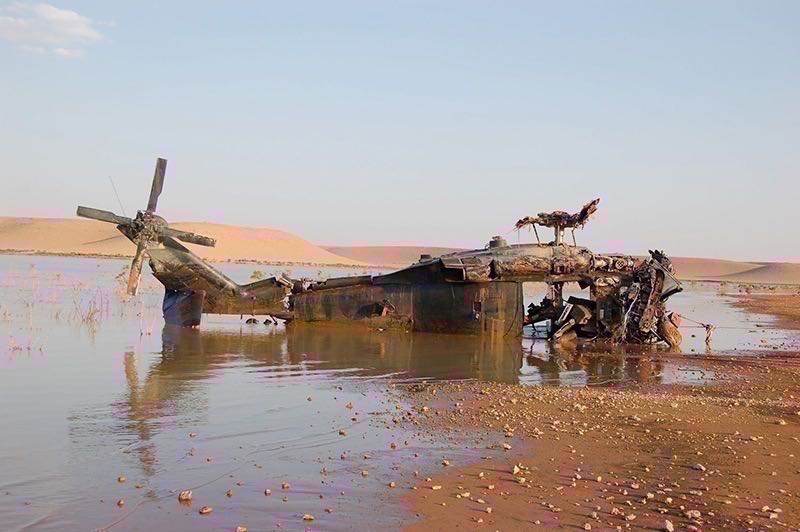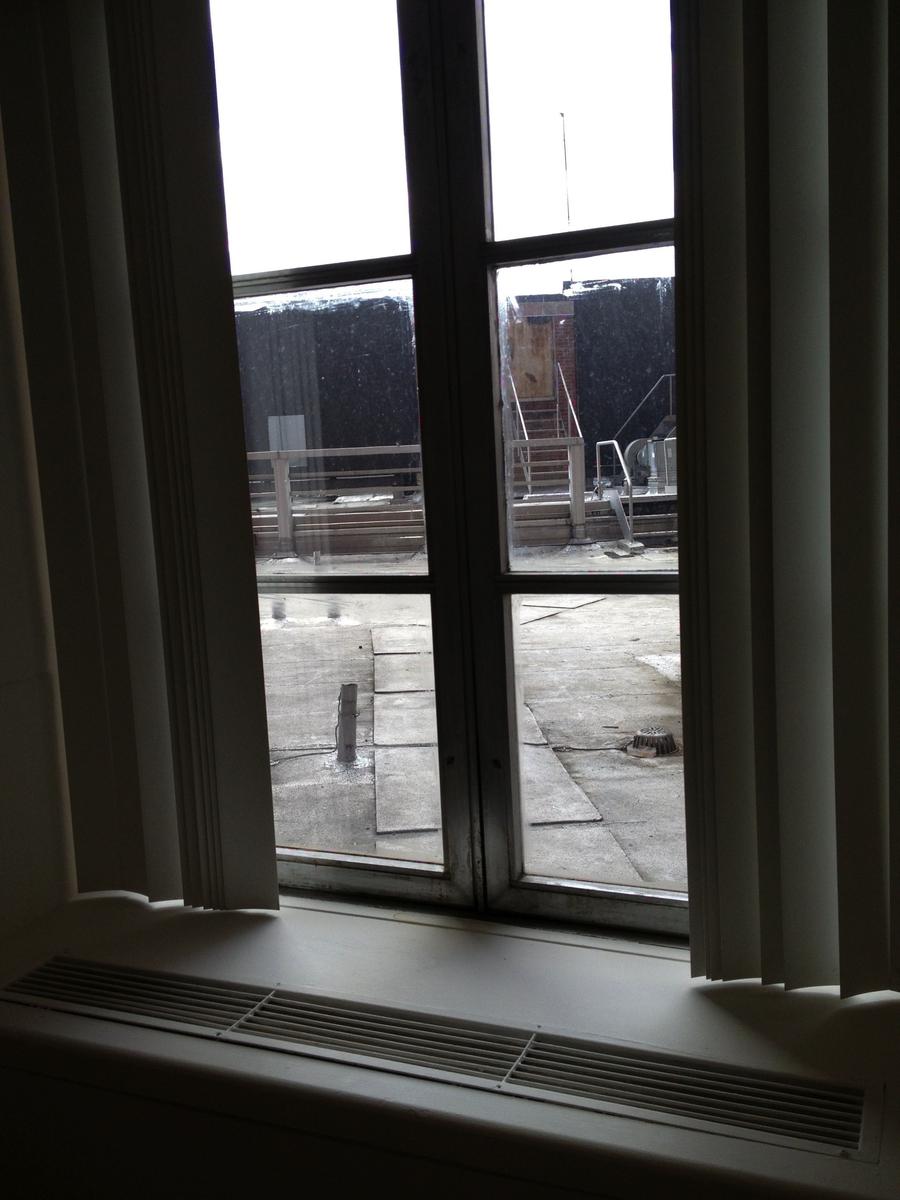The Death Agreement (3 page)
Read The Death Agreement Online
Authors: Kristopher Mallory
Tags: #madness, #bloody, #alan goodtime, #all in good time, #jon randon, #jon randon series, #the death agreement

I fought against the dozen hands
pressing on my shoulders and arms, pain so intense, I thought it
would kill me. "Don't do it!" I screamed. "Don't you fucking do
it!"
"Relax, Lieutenant Randon. This
will be over soon."
I continued to struggle, but
whatever drugs they had pumped into my arm had started to take
effect.
My strength faded fast and
darkness crept into my vision.
The German doctor leaned over me,
his breath smelling like pistachios.
Then I was gone.
***
In the end, the doctors managed to
save my left leg, amputating my right leg instead.
I would've thought it funny if I
weren't already plotting suicide. The hospital staff must have
known. They kept my wrists strapped down and never left me
alone.
A week later, the Army sent word I
was stable enough to leave Ramstein and put me on a C-17 flying
back to the States, destination: Walter Reed Army Medical Center,
Maryland—otherwise known as the prison where I had been doomed to
spend the next eighteen frustrating months.
***
As an incoming WRAMC patient, I
quickly learned no one enjoys being helpless. Though angry at
myself, I took most of the bitterness out on the nursing
staff.
I always felt like being a
miserable little cuss. If anyone wearing a uniform came into my
room, I screamed at them until they retreated.
Even the nurses changing my
dressings or emptying my bedpan weren't spared my wrath.
The staff always kept their cool,
even when I lost mine. They met my rants with understanding eyes
and unwavering friendliness. Because of their impossibly kind
treatment, my anger faded to depression, and regardless of the pity
I wanted to feel, my attitude improved as the wounds
healed.
Then the hospital staff felt
confident enough in my mental state to transfer me to a private
room, and that's when life became a little more
bearable.
They call that the end of 'Phase
One'. I still hated the fact I was alive but no longer thought
about suicide everyday. Though I didn't know it, I was well on my
way into 'Phase Two', affectionately known as the 'Wounded Warrior
Nothing Game'. It's the part of recovery when the mind has too much
time to think and the body isn't capable of doing much of anything.
Stuck in a bed for most of the day, I read books, played video
games, and looked at too much porn.
When you are down a limb, what
else is there other than fantasizing? At least it wasn't my right
arm they cut off.
***
Months later, I heard a heavy
knock at my door.
"Coming," I said, rolling my
wheelchair over to the foyer. I opened the door to Taylor standing
in the hallway holding up two middle fingers.
"Hey, Gimp!" He pulled me up for a
hug.
"What in the hell are you doing
here? I thought you were still in the sandbox?"
"Nope. I'm done with that. My
promotion came through, and they offered me a Joint Task Force
position at the Naval Academy in Annapolis. We're practically
neighbors." He took a deep breath and let it out. "Damn good to see
you, Jon."
"You too, Jesse. I'm glad you're
are back home."
We caught up over lunch, talking
about the normal things friends talk about. Taylor told me Lorie
and little Jon sent their love, as did the rest of his family, then
he took out his laptop.
"You gotta see these," he said.
"Look."
He clicked on a folder and
pictures from Afghanistan filled the screen. As he swiped though,
he gave a morose report on our friend that didn't make it out.
After a moment of silence for the fallen, he flipped over to the
next image and my heart nearly stopped.
A mangled and destroyed Black Hawk
sat partially submerged in a glorified puddle of water. All of the
propeller blades had been broken off and the cockpit smashed in
completely.
"Is that…?"
"Yes. I went out to the crash site
while you were in Germany."
I tried to speak but
couldn't.
"Thought you might want it,"
Taylor said. He opened up his email account, attached the image,
and pressed send.
I nodded. "Excuse me. I'll be
right back."
"Sure."
I rolled my wheelchair to the
bathroom, not wanting to break down in the middle of the dining
hall.

Once I regained my composure, I
went back to the table and broke the ice again by explaining how I
could still wiggle my toes even though they weren't
there.
Taylor suggested we join a group
of Air Force guys playing cards at another table. We played,
laughed, and had a good time. After a while, he looked at his watch
and said he needed to get home.
Taylor stood up and reached into
his back pocket. "Read this over," he said, handing me a thick
envelope.
"What's this?" I asked. "Suicide
note, I'm guessing. Is today the day?"
"Not for us." Grinning, he leaned
down, hugged me again, and left.
I excused myself from the poker
game and wheeled over to a quiet corner of the dining
room.
THE DEATH AGREEMENT had been
printed across the top of the first page. Confused, I browsed
through the letter, a contract of sorts. I wasn't quite sure what
to make of it. The pages talked of friendship and what it meant to
be remembered, each section dealing with a different aspect of a
person's death.
The letter Taylor had given me
explained that he believed someone could stop worrying about dying
if they knew a trusted person would tell their story after they
were gone. He proposed we do this for each other. Nothing fancy,
just the truth. If I died, Taylor would give my eulogy. If he died,
I'd speak for him.
I thought that the contract was
some sort of evolution of his original idea back at Rucker. I read
it over a dozen times, studying all eight parts, each section
containing a few stipulations. I scratched out an item here and
there and added in others. The document could help us. It could
remind us to enjoy life. It could propel us to leave a mark on this
world.
By the time Taylor visited again,
I had worked through several revisions of The Death Agreement. We
went over everything and compiled a final version. Then Taylor had
it printed on heavy stock paper in a crisp, legalese-style font.
The finished contract felt heavy in my hands and looked more
professional than any legal document I had ever seen.
Taylor had left plenty of free
space to make notes and future additions. Even the United States
Constitution had left room for improvement.
We sat across from each other in
my small dorm as a notary public officer hunched over the two
copies lying on the table between us. We signed and stamped The
Death Agreement, making it official.
I popped open a couple of beers,
and we drank to celebrate.
***
Taylor came to visit every other
Saturday.
We hung out watching television or
playing video games mostly, but when my pain subsided, and I felt
well enough to travel, we began to explore around the closed-down
sections of the campus.
Most of the facilities had been
abandoned and off-limits by this point. In 2011, the government had
ceased primary operations of the hospital under Base Realignment
and Closure, or BRAC as it's more commonly known, and most patients
and staff were transferred to the newly built location in Bethesda,
Maryland. The public eye had been focused on the state-of-the-art
treatment center, so hardly anyone paid attention to the old
hospital, which had maintained a medical presence in case some
unforeseeable event required MEDCOM to backtrack. A small group of
patients still needed to be on-site to justify the skeleton crew.
How they picked who got stuck with the sub-par care is anyone's
guess. I think it had a lot to do with the attitudes of the wounded
soldiers. The last thing command needed was some camera crew
filming a disgruntled soldier in the lobby of their pride-and-joy
pork belly project.
Fine by me. I preferred the quiet.
Besides, it allowed Taylor to freely push my wheelchair down the
empty streets while we listened to the sound of nature reclaiming
the world.
Weeks passed. My attitude
improved, and a prosthetic leg replaced the wheelchair.
Suddenly, I was able to do things
on my own again, albeit with a little help from crutches. Stairs,
for example, had become my nemesis. Though I was still in constant
pain, I could stand, and that's all that mattered.
Bursting into my room one morning,
Taylor said, "Get your lazy ass up! We got work to do!"
"Give me a minute," I
said.
"We ain't got all day."
"Yeah, yeah. Give me a sec. I
think I know where we should go first."
We had mapped the place during our
previous wheelchair strolls, picking out which of the old,
abandoned buildings we wanted to break into, but there was one
place in particular that seemed like the best starting
point.
I closed the book I had been
reading. For weeks, I had dug into the history of the campus.
Through my research I had discovered the hospital was originally
been built in the early 1900s, the location chosen because
President Lincoln had used the land as a field hospital during the
Civil War. Gravely wounded Union soldiers were sent to that camp,
most of whom had required amputations.
A few historians said that some of
the original buildings still existed. They had been incorporated
into the design of the main hospital building. Fascinated by each
new fact uncovered, I wanted to go there. The more I learned, the
more excited I became. I couldn't wait.
Taylor tapped his fingers on the
refrigerator. "What the hell is taking so long?"
"Okay," I said, writing the down
an interesting fact into a three-ring spiral notebook.
We left and began our first real
exploration.
His motives were different from
mine. He had believed the rumors that Walter Reed was haunted by
the soldiers who died on the grounds. I couldn't tell if it was a
joke or not. Prior to the helicopter crash, I didn't subscribe to
ghosts or anything paranormal. To be honest, I didn't much care to
listen to him go on and on about the nonsense that some people had
supposedly witnessed.
Did we see and hear things? Yes,
I'll admit that. Was I scared? Goddamn right I was scared. But
ghosts? Sorry, I wasn't buying it.
Out of all of the things we had
seen on our expeditions, I was most shocked by what we discovered
in the closed-off wing of an unnamed ward. Before getting into
specifics, it's important to know how difficult it had been to
access.
From ground level we couldn't find
any way into that part of the building. All the doorways and
windows had been filled in with bricks and painted over.
Taylor figured a basement hallway
from the adjacent building connected them, so we looked all over,
but still couldn't find a way.
"If there was ever a path, it was
sealed off long ago," I said.
Taylor shook his head. "Uh-uh.
There's a way in. I know it."
Undeterred, he led me up the
levels, searched each floor in turn, and only found more bricked up
doorways. On the top floor, we discovered something odd. It wasn't
a door, but a nailed-shut window that led to the roof. On the other
side, a small door above the closed-off section called to
us.
We pried the frame loose and
stepped into the cold wind.
